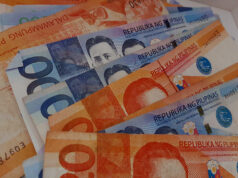SENATOR Cynthia A. Villar, who chairs the Senate Agriculture committee, said the new Coconut Levy bill that will replace a measure vetoed in the last Congress will take into account a likely delay in P30-billion worth of funding, adding that she sees no problem with the delay since the government can tap other readily-available sources.
Ms. Villar said the new legislation will take into account the requirements of Executive Order No. 179, issued in 2015 by former President Benigno C. Aquino III. The EO authorized the sale of assets funded by the original coconut levy, potentially raising about P30 billion.
Ms. Villar told reporters in a chance interview that some of those assets are locked up in litigation, potentially delaying their disposal, but added that the trust fund for the coconut industry that will be set up under the bill will initially be funded for about P75 billion in cash currently held by the Treasury.
“Wala namang (There is no) problem doon sa (in the) P75 billion na cash na nasa (which is in the Bureau of) Treasury. The problem is the assets that will be sold to generate the additional P30 billion may problema pala yun (access to the funding will be problematic). May mga kaso (They are tied up in legal disputes).”
Ms. Villar, speaking on the sidelines of the Sustainable Agriculture Forum Wednesday, said the EO was recently upheld by the Supreme Court, paving the way for the assets’ ultimate disposal.
“We will be incorporating (funding from the asset sale)… we don’t need that money yet. There is P75 billion (in available funding); if you distribute it at the rate of P5 billion a year it will take 15 years,” she added.
EO N0. 179 was issued in March 2015 by former the President, setting the guidelines for the inventory and privatization of Coconut Levy assets.
The EO authorizes the Privatization and Management Office to undertake “the actual marketing/disposition program for the non-cash Coco Levy Assets, to execute and deliver, on behalf of the Government, the deeds of sale, contracts and other instruments as may be necessary or appropriate to convey title to such assets, to take possession of and conserve the non-cash Coco Levy Assets transferred to it, and to engage external expertise as may be necessary in the fulfillment of its tasks under this Order.”
The EO also directed that the proceeds go toward improving the coconut industry’s productivity, developing coconut-based enterprises, increasing the income of coconut farmers, strengthening farmers’ organizations, and achieving “balanced” and “equitable” growth for the industry.
The Coconut Levy was a Marcos-era imposition on coconut farmers collected on the pretext of improving the industry, though the ultimate disposition of the funds was disputed. The levy funds took decades to trace, until the previous Congress submitted legislation for a Coconut Industry Trust Fund, which President Rodrigo R. Duterte vetoed in February, citing the need for stronger safeguards in the fund’s disbursal.
“We are confident the President will sign (the new legislation),” Ms. Villar said during the forum.
The trust fund is expected to benefit 3.5 million coconut farmers.
At his State of the Nation Address Monday, Mr. Duterte said: “I also have not forgotten my commitment to uplift the lives of coconut farmers and further develop the coconut industry through the urgent utilization of the Coconut Levy Fund.” He also pushed lawmakers to pass “a more responsive version” of the bill. — Vincent Mariel P. Galang



